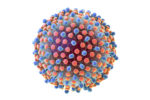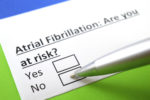Anaphylaxis is a severe and potentially fatal allergic reaction. It may start within seconds, minutes, or hours following contact with an allergen. An allergen is a substance that is capable of producing an allergic reaction. This happens when the body identifies a substance as harmful and wants to protect itself. Should someone have an anaphylactic […]
Anaphylaxis
Anaphylaxis is a severe and potentially life-threatening allergic reaction that can occur rapidly after exposure to an allergen. Common triggers include certain foods, insect stings, medications, and latex.
Symptoms
- Breathing difficulties
- Nausea and vomiting
- Rashes or hives appearing on the skin
- Swelling of the face, lips, or throat
- Rapid heartbeat
- Dizziness or fainting
First Aid Response
- Call Emergency Services: Dial 999 or 112 immediately.
- Administer Adrenaline: Use an auto-injector (e.g., EpiPen® or Jext®, if available.
- Monitor the Person: Keep them calm, monitor breathing and consciousness, and prepare to perform CPR if necessary.
For detailed information, refer to the What is Anaphylaxis page.
Dehydration
Dehydration occurs when the body loses more fluids than it takes in, disrupting normal bodily functions. It can result from inadequate fluid intake, excessive sweating, vomiting, or diarrhoea.
Symptoms
- Thirst
- Dry mouth and lips
- Dark yellow, strong-smelling urine
- Dizziness or lightheadedness
- Fatigue
- Infrequent urination
First Aid Response
- Encourage Fluid Intake: Provide water or oral rehydration solutions. Avoid caffeinated or alcoholic beverages.
- Rest: Advise the person to sit or lie down in a cool, shaded area.
- Monitor Symptoms: If symptoms persist or worsen, seek medical assistance.
For more information, visit the Dehydration page.
Sudden Arrhythmic Death Syndrome (SADS)
SADS is caused by abnormalities in the heart’s rhythm, leading to sudden death in seemingly healthy individuals.
Symptoms
- Family history of unexplained deaths under 40
- Fainting or seizures during physical activity
- Palpitations
- Dizziness
First Aid Response
- Call Emergency Services: Dial 999 or 112 immediately if someone collapses unexpectedly.
- Begin CPR: If unresponsive and not breathing, start cardiopulmonary resuscitation.
- Use an AED: Deploy an Automated External Defibrillator as soon as possible.
For more information, visit the SADS page.
Parkinson’s Disease
Parkinson’s disease is a progressive neurological condition that affects movement.
Symptoms
- Tremors or shaking, usually in hands or fingers
- Slowed movement (bradykinesia)
- Muscle stiffness
- Impaired balance
- Changes in speech and writing
First Aid Response
- Ensure Safety: Help the person move carefully to prevent falls.
- Assist with Medication: If prescribed, ensure they have access to it.
- Encourage Rest: Fatigue can worsen symptoms.
For details, visit the Parkinson’s Disease page.
Further Resources
Expand your knowledge on illnesses and first aid:
- Understanding the Respiratory System
- Heart Attack Symptoms and First Aid
- Hypothermia Prevention and Treatment
- Recognising and Treating Shock
For comprehensive first aid training, enrol in our First Aid at Work Annual Refresher (VTQ) course.








